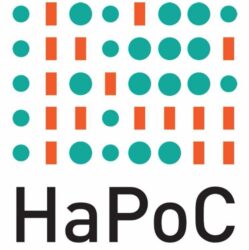The lesson seems to be this: we cannot fully understand our own conceptual scheme without
plumbing its historical roots, but in order to appreciate those roots, we may well have to filter them back through our own ideas.
Judson C.Webb, 1980
The computer is not one thing but many different things, and the same holds true of computing.
Mike Mahoney, 1988
Calculemus! Let us calculate! These are Leibniz’ famous words. He could probably not have imagined that about three centuries later almost anybody would rely on computations for everyday life tasks. Especially since the development of the so-called personal computer in the ’80s and the world-wide web in the 90s, computing has penetrated the several levels of our society, becoming crucial for anything from scientific research to the organization of our social lives. Despite their widespread applications, the computing sciences remain hidden behind layers of so-called user-friendly interfaces and their full understanding requires specialized knowledge.
As Mike Mahoney once stated, “the computer is not one thing but many different things, and the same holds true of computing”. This is not only true with respect to the historical roots of the computer. The great influence of the logical, mathematical and engineered object called the computer is grounded in the fact that the scope of computation has increased significantly. As a consequence, the computing sciences collect the most diverse complex of experts: philosophers, logicians, historians, mathematicians, computer scientists, programmers, engineers. The number of involved topics grows accordingly: from the foundational issues to their applications; from the philosophical questions to problems of realizability and design of specifications; from the theoretical studies of computational barriers to the relevance of machines for educational purposes.
That a machine can offer enormous technological and scientific advantages as well as challenging ethical problems, makes it a philosophically and historically relevant object.
While the community of philosophers working in the area of computational, robot- and machine-ethics is very broad and active, we believe that less is being done on the philosophical and historical relevance of the foundational, formal and practical work of mathematicians, computer scientists and engineers. The aim of HaPoC is to build and maintain a community of people who want to take up this challenge. We are strongly convinced that an interplay between researchers across disciplines with a serious interest in the history and philosophy of computing can crucially add to the maturity of the field of computing in general.
General Aims
- To enhance our understanding of computing by means of historical and philosophical explorations;
- To enforce and support collaborations among researchers involved in any of the topics relevant to HaPoC
- To promote the organization of scientific and cultural events that strengthen knowledge and
relevance of computing.
Concrete goals
- The organization of a bi-annual International Conference on the History and Philosophy of
Computing. - To collect and organise on thiswebsite resources related to HAPOC: publications, events, teaching
material etc. - Maintain a mailing list tomoderate discussions, disseminate announcements, etc.
- To coordinate collaborative projects and to plan and guide funding proposal submissions.
